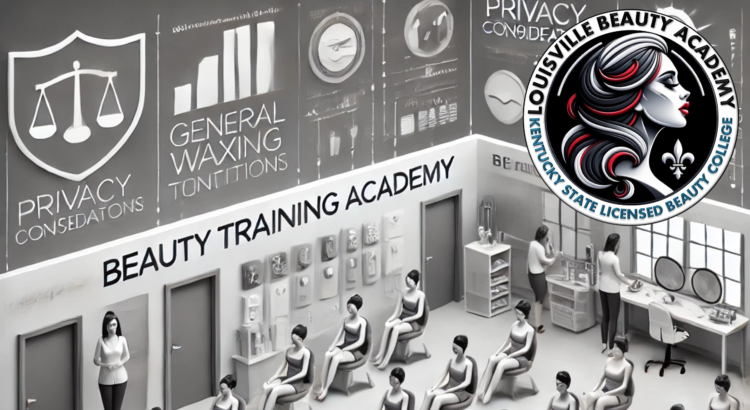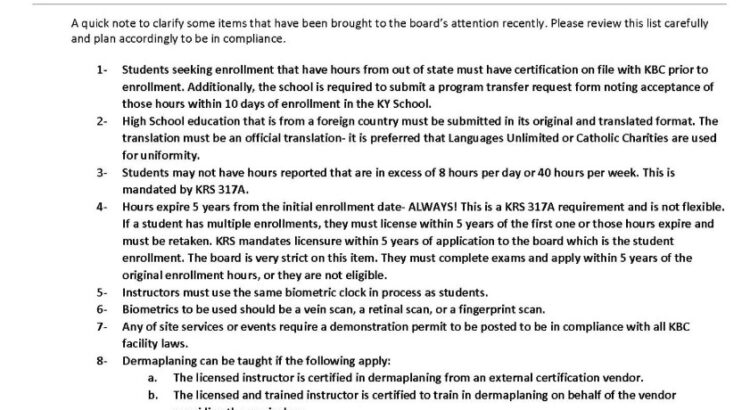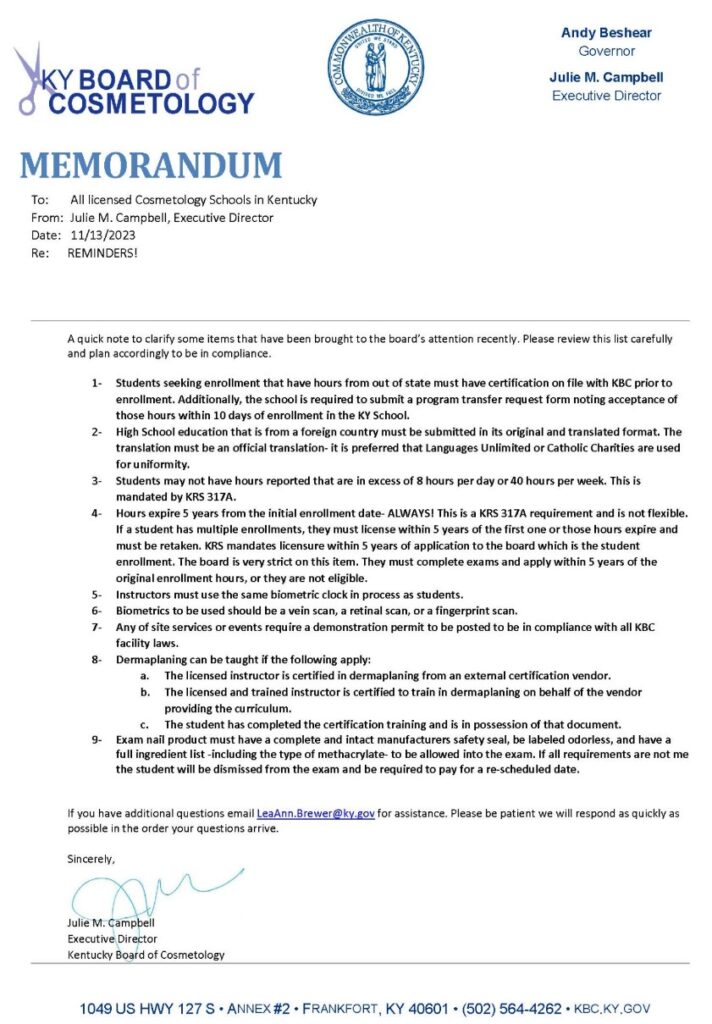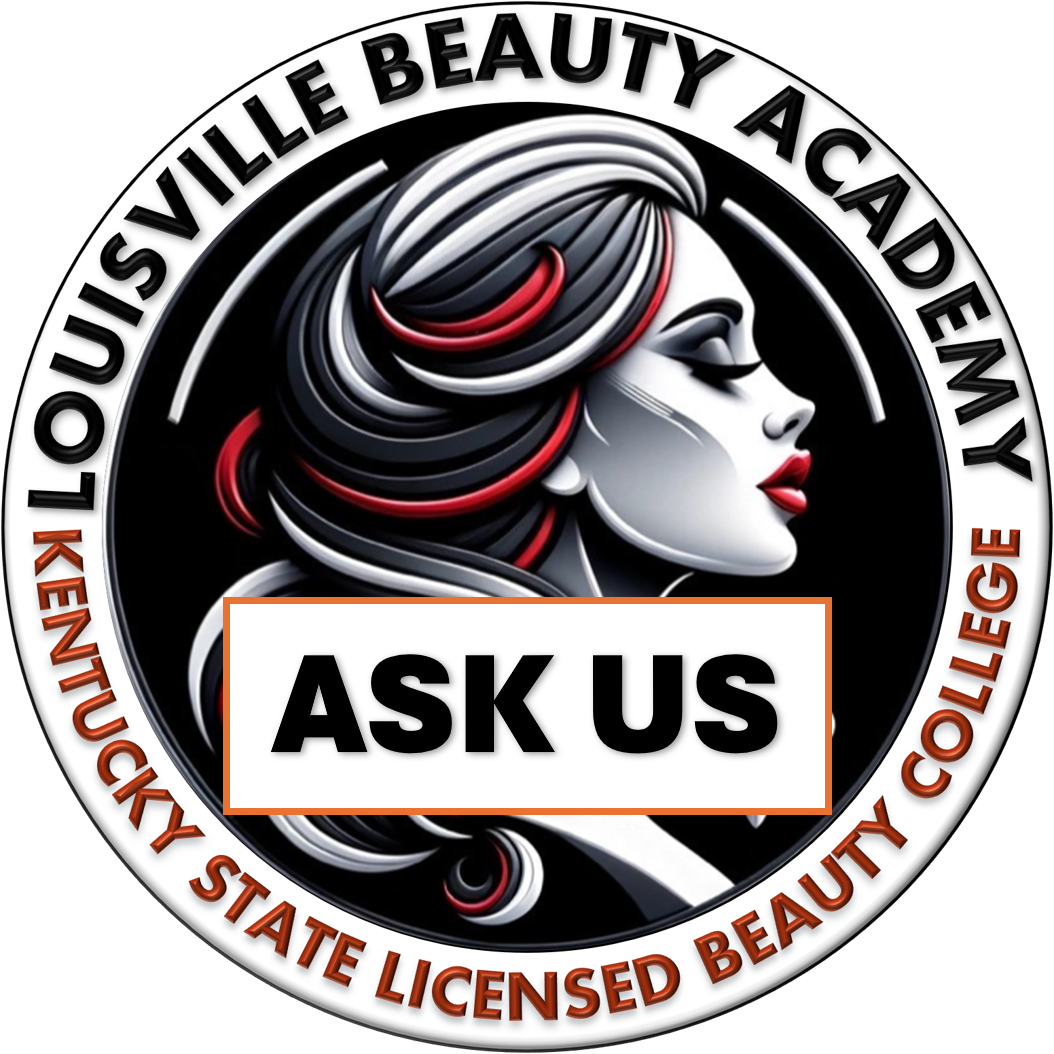Introduction:
At Louisville Beauty Academy, our mission is to provide high-quality education that equips students with the skills and knowledge needed to excel in their chosen professions. As part of our esthetics training, we focus on mastering waxing techniques applicable to a variety of services. However, to maintain the integrity, safety, and inclusivity of our public training environment, we do not allow the performance of Brazilian waxing within the academy. This decision underscores our commitment to protecting our students, staff, and school while ensuring compliance with all legal and licensing requirements.
General Waxing Skills for Career Readiness:
Our curriculum emphasizes the importance of mastering foundational waxing techniques. These skills are designed to prepare students for a wide range of waxing services they may encounter in their professional careers. By focusing on general waxing methods, we ensure students are well-prepared to meet diverse client needs while aligning with state board requirements.
Clarifying Licensing Requirements in Kentucky:
The Kentucky State Board of Cosmetology requires esthetician students to complete 750 hours of training, which includes instruction in various hair removal techniques. However, there is no specific requirement to perform Brazilian waxing as part of the curriculum or licensing exam. Same rule is applied to Cosmetology (1500 hours). The board’s focus is on general waxing skills, ensuring students have the necessary foundation for their professional careers. At Louisville Beauty Academy, we align strictly with these state requirements, prioritizing comprehensive technical training that prepares students for licensure and beyond.
Why Brazilian Waxing Is Not Performed in School:
- Protecting Privacy and Inclusivity in a Shared Environment:
- As a public training institution, our spaces are shared among students from various disciplines, with over 90% focusing on areas beyond esthetics or cosmetology.
- Brazilian waxing, which requires private, locked spaces, conflicts with the open and communal nature of our training environment. Prioritizing privacy for one service could inadvertently create discomfort for other students or disrupt the shared learning space.
- Legal and Licensing Compliance:
- Our instructors are licensed professionals legally obligated to monitor all services performed by students. Brazilian waxing introduces additional liability concerns that are not required by the Kentucky State Board of Cosmetology for licensure.
- As an institution, we must adhere to strict licensing regulations to protect our operational integrity and ensure compliance with state laws.
- Maintaining Safety and Security:
- Locked-room services pose unique challenges in a public environment, potentially compromising the safety and security of students, clients, and staff.
- By focusing on services that can be monitored openly, we uphold the highest standards of safety for everyone involved.
- Balancing the Needs of All Students:
- The academy serves a diverse student body, and it is our responsibility to ensure an inclusive, supportive, and comfortable environment for all. Limiting specialized services like Brazilian waxing helps maintain this balance while ensuring all students can focus on their training without disruption.
Elevating Standards Through Careful Practices:
By emphasizing general waxing techniques, we not only prepare students for their licensing exams but also foster an environment of professionalism and excellence. This approach allows students to build a strong foundation while leaving room for specialization in their future careers.
Conclusion:
At Louisville Beauty Academy, we prioritize the safety, inclusivity, and success of our students. Our decision to exclude Brazilian waxing from the training environment reflects our dedication to maintaining a legally compliant, secure, and professional educational space. While Brazilian waxing is not required by the Kentucky State Board of Cosmetology, we ensure that students gain the comprehensive skills needed to succeed in their careers.
For questions or further clarification, we encourage students to reach out to our instructors, who are always available to guide and support their professional development.
By focusing on these principles, Louisville Beauty Academy continues to uphold its reputation as a trusted and respected institution, dedicated to producing confident, capable, and successful graduates.








